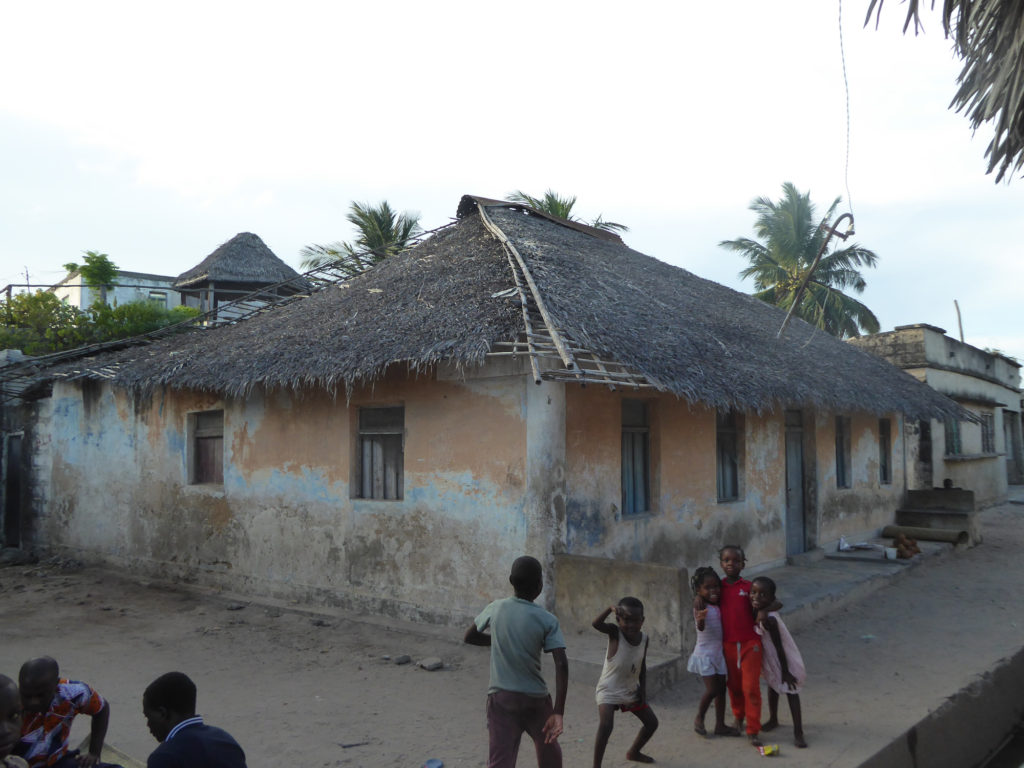Contributions to society

CIAUD-UPT has been working closer to communities in Portugal and abroad.
This work was first developed through Ci-ESG, during 15 years, more specifically with Municipalities, Civil Perishes, and NGOs such as Santa Casa da Misericordia.
In 2024, CIAUD-UPT won a bid to develop projects specifically dedicated to the adaptation of local communities to climate change.
This work was first developed through Ci-ESG, during 15 years, more specifically with Municipalities, Civil Perishes, and NGOs such as Santa Casa da Misericordia.
In 2024, CIAUD-UPT won a bid to develop projects specifically dedicated to the adaptation of local communities to climate change.

Island of Mozambique project
Project Title:
‘Management and Conservation of Material and Intangible World Heritage and Environmental Management, Climate Change and Resilient Responses to Cyclonic Events.
Call: World Heritage International Assistance – response nº3428.
Funding: World Heritage Assistance Fund
Organizer: GACIM – World Heritage Office for the Conservation of Mozambique Island, in Mozambique.
Period: 2024-2025
Key-impact: Preparing communities to climate change, World Heritage property in Africa
‘Management and Conservation of Material and Intangible World Heritage and Environmental Management, Climate Change and Resilient Responses to Cyclonic Events.
Call: World Heritage International Assistance – response nº3428.
Funding: World Heritage Assistance Fund
Organizer: GACIM – World Heritage Office for the Conservation of Mozambique Island, in Mozambique.
Period: 2024-2025
Key-impact: Preparing communities to climate change, World Heritage property in Africa
Abstract:
According to the 2021 Global Climate Risk Index, Mozambique was the country most affected by climate change, in Africa. The impacts of climate change are expected to increase over the next decades. The Island of Mozambique, listed as a World Heritage property by UNESCO since 1991, faces a series of challenges related to its preservation and vulnerability to extreme weather events, especially cyclones. The passage of Cyclone Gombe, in March 2022, highlighted the urgent need to develop resilience strategies to protect local communities and architectural heritage from the impacts of these natural disasters. The Island, with its history and culture, has a material and immaterial legacy that needs to be protected and managed in a sustainable way, in the face of growing climate threats. This project is key to ensure that the Island of Mozambique can become an example of good practices in conservation and prevention, when facing the challenges brought by climate change. Through the creation of resilient management instruments and the strength of local capacities, it is expected that the project contributes to reinforce the protection of the Island of Mozambique and its people, in the face of natural disasters.
Main Aims of the project:
According to the 2021 Global Climate Risk Index, Mozambique was the country most affected by climate change, in Africa. The impacts of climate change are expected to increase over the next decades. The Island of Mozambique, listed as a World Heritage property by UNESCO since 1991, faces a series of challenges related to its preservation and vulnerability to extreme weather events, especially cyclones. The passage of Cyclone Gombe, in March 2022, highlighted the urgent need to develop resilience strategies to protect local communities and architectural heritage from the impacts of these natural disasters. The Island, with its history and culture, has a material and immaterial legacy that needs to be protected and managed in a sustainable way, in the face of growing climate threats. This project is key to ensure that the Island of Mozambique can become an example of good practices in conservation and prevention, when facing the challenges brought by climate change. Through the creation of resilient management instruments and the strength of local capacities, it is expected that the project contributes to reinforce the protection of the Island of Mozambique and its people, in the face of natural disasters.
Main Aims of the project:
- Assessment of the state of conservation, following the impact of Gombe Cyclone.
- Development of a multisectoral management instrument for disaster response.
- Addressing capacity building in conservation and management of World Heritage.
- Designing a booklet with recommendations in resilience and community management of risks in World Heritage, when facing natural disasters due to climate change.
